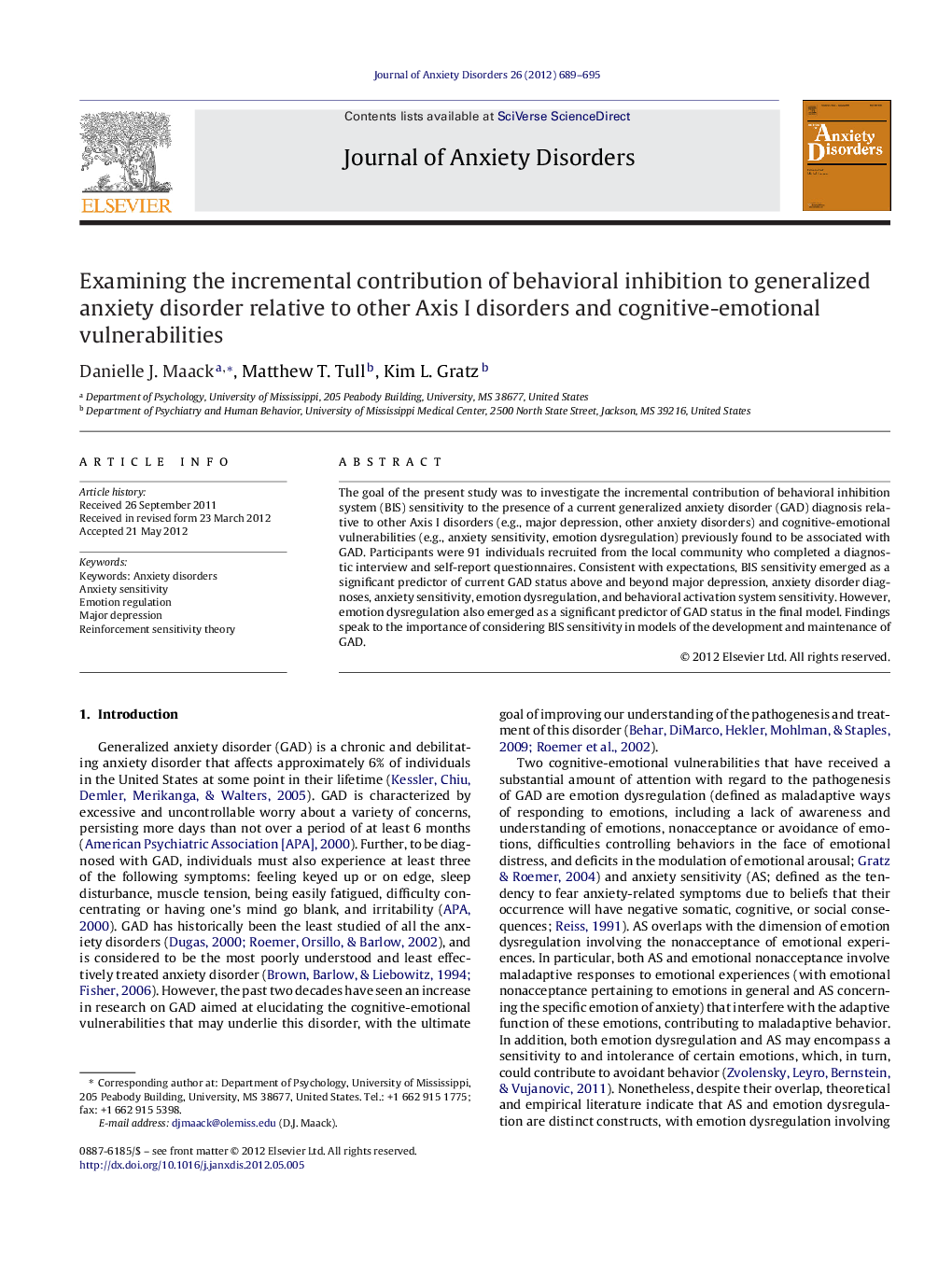| کد مقاله | کد نشریه | سال انتشار | مقاله انگلیسی | نسخه تمام متن |
|---|---|---|---|---|
| 909476 | 917286 | 2012 | 7 صفحه PDF | دانلود رایگان |

The goal of the present study was to investigate the incremental contribution of behavioral inhibition system (BIS) sensitivity to the presence of a current generalized anxiety disorder (GAD) diagnosis relative to other Axis I disorders (e.g., major depression, other anxiety disorders) and cognitive-emotional vulnerabilities (e.g., anxiety sensitivity, emotion dysregulation) previously found to be associated with GAD. Participants were 91 individuals recruited from the local community who completed a diagnostic interview and self-report questionnaires. Consistent with expectations, BIS sensitivity emerged as a significant predictor of current GAD status above and beyond major depression, anxiety disorder diagnoses, anxiety sensitivity, emotion dysregulation, and behavioral activation system sensitivity. However, emotion dysregulation also emerged as a significant predictor of GAD status in the final model. Findings speak to the importance of considering BIS sensitivity in models of the development and maintenance of GAD.
► We examined BIS sensitivity as it relates to current GAD diagnosis.
► BIS emerged as a significant predictor of GAD beyond relevant co-variates.
► Findings speak to importance of BIS in models of development and maintenance of GAD.
Journal: Journal of Anxiety Disorders - Volume 26, Issue 6, August 2012, Pages 689–695